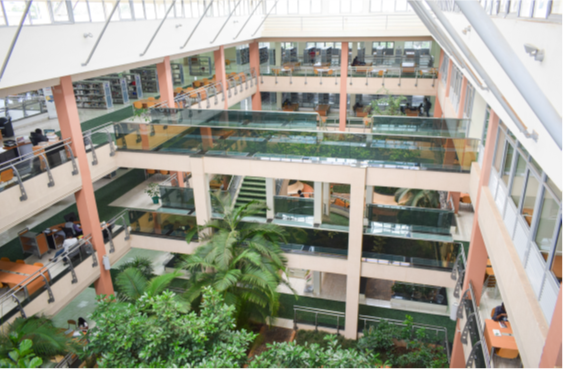IFLA Green Library Award 2018 Winners Announced
19 July 2018
IFLA’s Environment Sustainability and Libraries Special Interest Group (ENSULIB) is pleased to announce the winner of the IFLA Green Library Award 2018.
The IFLA Green Library Award was established in 2016 by ENSULIB (SIG) and generously sponsored by De Gruyter publishing. The award is 500 Euros for the first place winner.
Objectives
- to reward the best Green Library submission that communicates the library’s commitment to environmental sustainability;
- to create awareness of libraries’ social responsibility and leadership in environmental education.
To ENSULIB’s great delight, 32 submissions were received from around the world, including Argentina, Brazil, Bulgaria, China, Colombia, Croatia, France, Hungary, India, Indonesia, Iran, Ivory Coast, Kazakhstan, Kenya, Latvia, Pakistan, Philippines, Romania, Spain, Ukraine, USA, and Uzbekistan. When the call for reviewers went out, 17 people stepped up to help with the process. The reviewers were as diverse as those who submitted. Coming from Australia, France, Finland, Kenya, Germany, Pakistan/New Zealand, Portugal, Spain, Sweden, and the U.S., they were a blend of LIS students, library professionals (from public and academic libraries) and an architect as well.
See full details in the Press release [English – PDF].
The award will be presented at the at the World Library and Information Congress in Kuala Lumpur, Malaysia, Session 153b, Special Presentation of Awards Session, held on Monday, 27 Aug 2018, 12:45–13:45, Expo Pavillon.
Winner of the 3rd IFLA Green Library Award 2018
The winner of the IFLA Green Library Award 2018 is Foshan Library for the project submission "Foshan Library’s Green Practice", located in Foshan new city, which is a key area of construction of sponge city in the province of Guangdong, China.
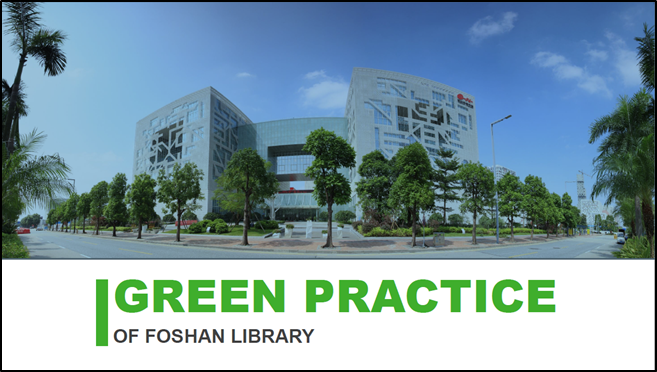
“The Foshan Library is a culturally significant building in harmony with the prevailing landscape, and which delivers a compelling architectural vision that pays homage to the cultural and artistic history of the region. The library and its services are strengthened by a powerful commitment to sustainable principles which extends to the architectural design, building materials, management, and staff commitment to continuous improvement and community education. The library presents an impressive array of engaging and inspiring green programs for its community.” More …
Five Runners Up (alphabetic order)
Hungary: The Jozsef Attila County and City Library in Tatabánya
Project Submission: "Library-Greening: Environmental education, strengthening of the environmentally aware attitudes with traditional and non-traditional resources”
The Jozsef Attila County and City Library in Tatabánya developed innovative and well received consciousness-raising programs to increase community awareness of the importance of sustainable and ecologically sound development practices. The library takes their sustainability message into local schools and communities and encourages the uptake of green policies and practices. The library used a holistic approach to consciousness raising through children’s games, community film events, eco competitions for schools and the green reading room to name but a few of their programs. More…
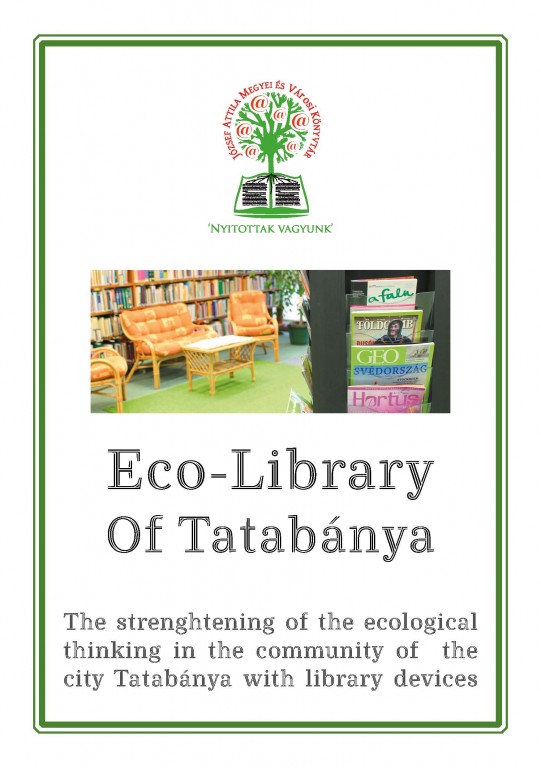
Romania: The Biblioteca Comunala Sirna, Prahova County
Project Submission: "Sirna Rural Library cultivates involved citizens"
The Biblioteca Comunala Sirna, Prahova county, is a great example of how libraries can and must advocate in their local communities for environmental care and above all: with the young generations – it is very difficult to reach local authorities in some countries, but these efforts were huge. The library has made significant progress with a range of programs that have changed the community – with a very little budget but huge outcomes – children as leaders for others. The library has developed impressive partnerships with local, regional and national organizations to provide ongoing education in sustainability practices.
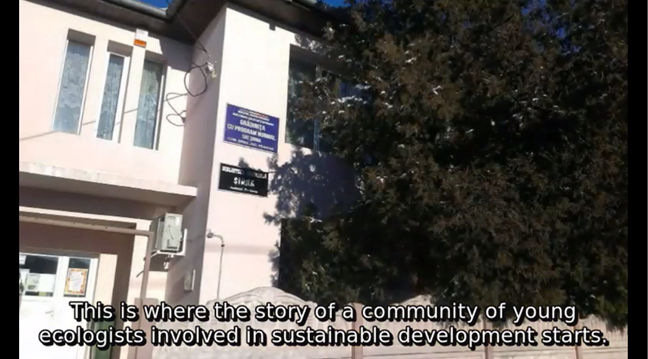
Croatia: The National and University Library, Zagreb
Project Submission: “Green Festival – Lets Go Green”
The National and University Library in Zagreb and its Green Festival shows great leadership across many sectors. The Lets Go Green Festival presented the latest scientific research in sustainability issues through lectures and talks and allowed green businesses to introduce their products and services to a wider audience. The festival promoted sustainable agriculture and food science, green technology, green energy and green building design and methods and materials. More …
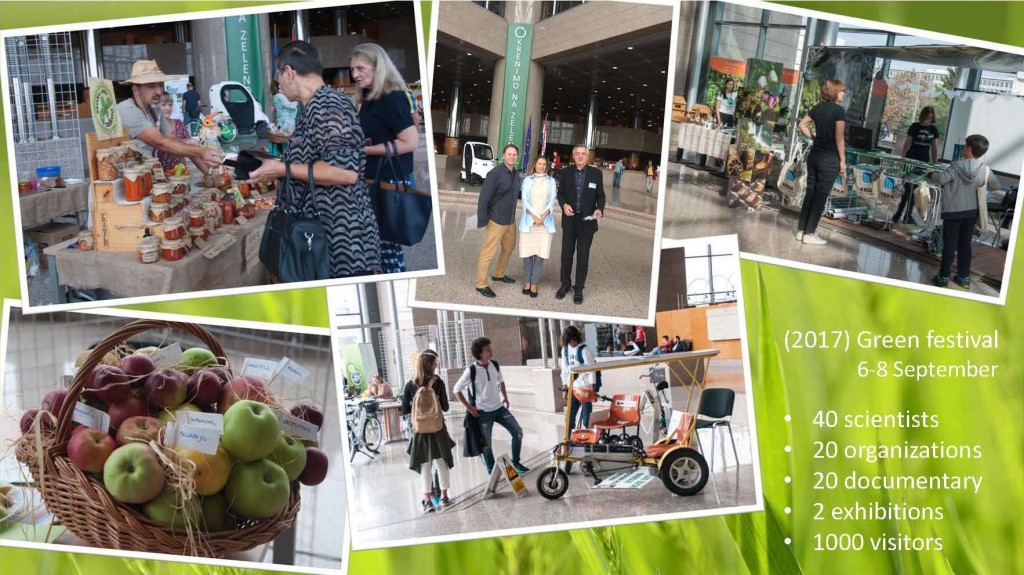
Iran: The National Library and Archives of Iran, Tehran
Project Submission: “Designing a Green Library Evaluation checklist”
The National Library and Archives of Iran, Tehran, have created something new and useful for every library, a checklist to evaluate a green library. Evaluating is important when planning and developing services and functions. It is interesting since the project is working on general guidelines more than on a single building. There are indicators so the study clarifies the existing situation, highlights success but also the needs. This could serve libraries as a roadmap towards becoming a green library. Extensive research and logical cohesive methods enabled the creation of a valuable planning checklist for current and future libraries and communities. The checklist encourages evaluation, self-reflection and continuous improvement in sustainability practices and identifies areas of deficiency and pathways for improvement. More …
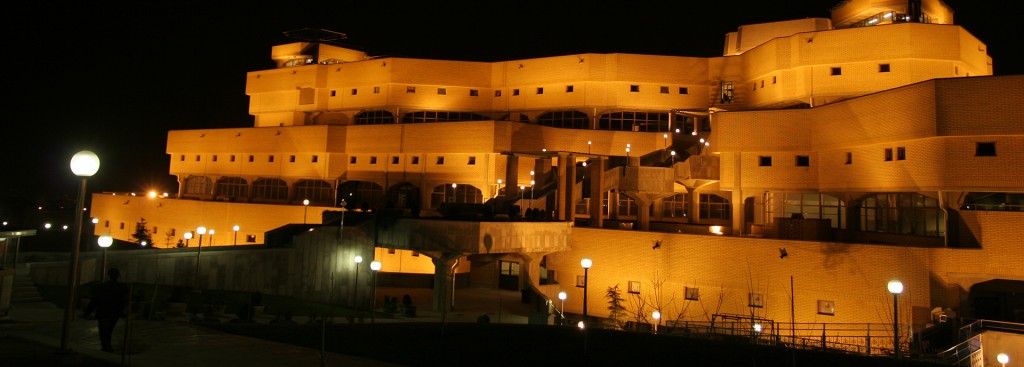
Kenya: The USIU-Africa Library, Nairobi.
Project Submission: “USIU-Africa: Garden in the library”
The USIU-Africa (United States International University-Africa) library is an enormously large green building with a library garden with trees, plants and everything for a green environment that also provides a good air for users and staff. The flat roof gives the harvest of rainwater to water the garden with. The gardens giving the library and outdoor effect. The plants give the library an ambience and homely feeling. The paper gives a more practical in approach to building and practices within tough economic realities. It shows libraries in Africa have also embraced the green movement, it is applicable in new buildings and can be used as a good benchmark, the methodology is very sound. The concept is original and shows innovativeness in the library practice in Africa. More …
